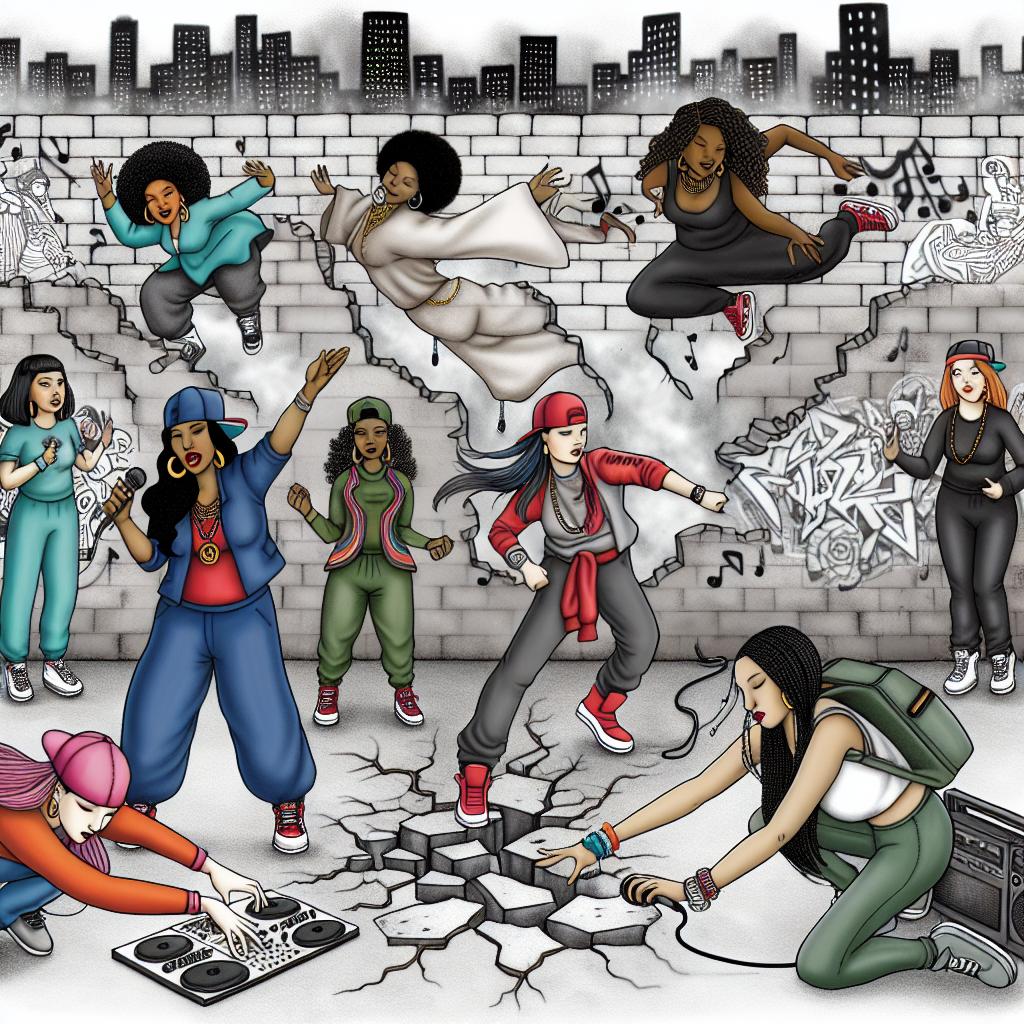The Emergence of Women in Hip Hop
In the early stages of hip hop, the genre was predominantly dominated by male artists. However, women began to carve out their space, contributing significantly to the culture and the music. These pioneering women not only showcased their unique talents but also brought attention to issues affecting women, making indelible contributions to the evolution of hip hop.
Pioneering Female Artists
Women like MC Lyte, Queen Latifah, and Salt-N-Pepa emerged as trailblazers in the late 1980s and early 1990s. They defied the stereotypes that confined women to the background. MC Lyte was the first solo female rapper to release a full album, setting a precedent for future female emcees. Her album, “Lyte as a Rock,” was influential not only for its lyrical prowess but also for proving that women could create successful, full-length rap albums, a domain largely considered a male stronghold.
Queen Latifah, with her album “All Hail the Queen,” was instrumental in addressing social issues through her music. She used her platform to talk about female empowerment, unity, and respect, delivering messages that resonated with many listeners. Queen Latifah’s contributions went beyond music; she embraced roles in film and television, further amplifying her influence and reach.
Salt-N-Pepa, a group that included Cheryl James and Sandra Denton, alongside DJ Spinderella (Deidra Roper), exploded onto the scene with hit songs like “Push It.” Their bold approach to themes like sexuality and relationships was ground-breaking at a time when such topics were often avoided by female artists. Their success demonstrated that women could capture mainstream audiences and compete on the charts with their male contemporaries.
Breaking Barriers Through Content
Many women in hip hop have used their music as a platform to discuss topics that were often ignored. Artists like Lauryn Hill and Missy Elliott pushed boundaries with their lyrical content and creative approach. Lauryn Hill’s “The Miseducation of Lauryn Hill” won multiple Grammys and tackled themes of love, identity, and socio-political issues. Her storytelling ability and introspective lyrics resonate with a wide audience, continuing to inspire artists today.
Missy Elliott revolutionized hip hop with her innovative music videos and futuristic sounds, breaking conventional norms associated with female artists. Her artistic vision defied stereotypes that plagued female musicians, offering a fresh, imaginative take on hip hop. Elliott’s ability to blend humor, relatability, and avant-garde aesthetics in her music solidified her status as a transformative force in the industry.
Impact on Gender Norms
The emergence of female hip hop artists challenged the industry’s gender norms. Women in hip hop did not conform to the traditional roles that were often limiting and objectifying. Instead, they forged new paths, demanding equal respect and opportunities. Through fashion, lyrics, and the business acumen, they have continuously disrupted the status quo.
Artists like Nicki Minaj have further expanded these boundaries, unapologetically embracing their femininity and power in a male-centric industry. Nicki Minaj’s alter egos and flamboyant stage presence have redefined traditional conceptions of identity and expression in hip hop. Her prolific work ethic and versatility have also shown that female artists can dominate charts while maintaining control over their artistry and image.
Modern-Day Influence
Today, women in hip hop are not just participants but are leading and redefining the narrative. Artists like Cardi B and Megan Thee Stallion have achieved commercial success while maintaining control over their careers and self-image.
Cardi B leveraged social media platforms to amass a strong fan base, catapulting her career with her chart-topping single “Bodak Yellow.” Her candidness about her past and her journey to stardom has made her a relatable figure for many, reshaping the notion of authenticity in the modern music landscape. Cardi B’s visibility in the media, along with her outspoken nature, has also influenced conversations around social issues, further extending her impact beyond music.
Megan Thee Stallion, known for her confidence and lyricism, has brought a fresh perspective to hip hop. With hits like “Hot Girl Summer” and “Savage,” she has become a key figure in the genre, celebrating empowerment and personal agency. Megan’s presence in hip hop emphasizes body positivity and self-love, challenging societal norms and encouraging listeners to embrace their true selves.
For more in-depth information on how women have shaped hip hop, numerous resources can be accessed through articles and discussions available on platforms such as Billboard and Pitchfork.
In conclusion, the journey of women in hip hop is a testament to resilience and creativity. These artists not only enriched the genre with their unique perspectives but also inspired future generations to continue breaking down barriers. They have left an indelible mark on hip hop culture, ensuring that the voices of women are recognized, appreciated, and celebrated in a genre where they were once marginalized. As more female artists emerge, the foundation laid by their predecessors continues to provide inspiration and opportunity, shaping the future of hip hop music and culture.


